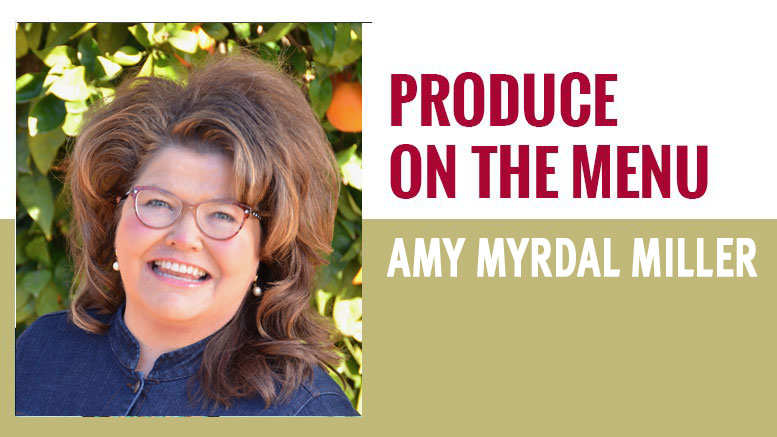Growing Demand For Plant-Forward Food
June 20, 2022 | 4 min to read
The article emphasizes the growing trend of plant-forward eating, which encourages a diet with more plant-based ingredients while not excluding animal products. The Produce for Better Health Foundation highlights numerous health benefits linked to increased plant consumption, including lower risks of disease and improved gut health. As nearly 75% of consumers identify as flexitarian, restaurants are adapting menus to include diverse plant-forward options. The trend is inclusive, appealing to a wide demographic, and offers significant opportunities for the produce industry.

Originally printed in the May 2022 issue of Produce Business.
Plant-forward is now the widely accepted term for menus and eating patterns that include more plant-based ingredients and fewer animal-sourced ingredients. The Produce for Better Health Foundation (PBH), in its Have A Plant: The Plant-Forward Eating Guide, positions plant-forward as an inclusive style of eating that is appealing to more people simply because it doesn’t omit any foods. Plant-forward puts an emphasis on eating and enjoying more plant-based foods without eliminating entire categories of foods.
Many people assume the health benefits associated with plant-forward eating come from eating fewer animal products, but science says the opposite is true. Health benefits arising from dietary patterns that contain more plant-based foods, like the Mediterranean diet, come from the plants, not the lack of animal products.
The PBH Plant-Forward Eating Guide summarizes health benefits across five areas for those who eat more plants: reduced risk of death from all causes, reduced risk of cardiovascular disease, lower body weight and lower risk of obesity, reduced risk of certain types of cancer, and improved gut health. Consumers may not be able to cite specific lists of benefits like this, but they associate plant-forward with “better-for-me” sentiments.
Many segments of the restaurant industry have been focusing menu R&D efforts on plant-forward concepts for many years, noting consumer health and wellness trends leading more consumers to seek “better-for-me” menu items across day parts and meal parts. Research from Datassential shows nearly half (46%) of all consumers surveyed agree the best way to encourage them to order more plant-forward menu items is for restaurants to add new menu items, including dishes with some meat or other animal protein that is not the “center of the plate.” Diners tend to hate it when restaurants change menu favorites, but are often delighted to see new menu items.
While some foodservice segments, such as campus dining, report increasing numbers of vegan and vegetarian diners, most foodservice operations are striving to meet the desires of diners who simply want more plant-forward options on menus. Research from many sources shows approximately three out of four consumers are flexitarian eaters, with one-quarter following diets that eliminate all or some forms of animal-based foods. Menu items like buffalo cauliflower offer the flexitarians a familiar favorite with a twist while offering those following a limited eating pattern something that is acceptable and hopefully delicious, too.
There are differences in sentiments around plant-forward eating between genders and among demographic groups. Women are more likely to seek out flexitarian menu options than men, and younger diners, especially millennials, are more likely to try new plant-forward menu options compared to older diners. There are also day part differences, with lunch being the time of day diners are most willing to go meat-free, a type of “salad for lunch and steak for dinner” mentality for balancing food choices over the course of a day.
Produce companies thinking about sales potential for products in plant-forward menu options should consider bowl concepts, which are powerful platforms for many types of produce items, but especially value-added products that are either prepped and ready to cook or pre-cooked, seasoned, smoked or grilled. Operations that feature bowls allow customers to easily customize an order to suit their mood and eating style. Bowls typically have a grain base topped with other plant-based ingredients like legumes, vegetables, fruits typically in the form of sauces or salsas, topped with protein.
Plant-forward is an eating style and menu trend that continues to grow. It’s inclusive of all foods, all cultures, all price points, and all produce items. Embrace the trend and see where it can take your produce business in the future.

Amy Myrdal Miller, MS, RDN, FAND is a farmer’s daughter from North Dakota, award-winning dietitian, culinary nutrition expert, and founder and president of Farmer’s Daughter Consulting, Inc. She is the foodservice strategist for the Produce for Better Health Foundation, a member of the Texas A&M AgriLife External Advisory Board, a member of the Bayer Vegetable Seeds Horticultural Advisory Council, the registered dietitian for the Buy California Marketing Agreement / California Grown, and co-author of Cooking á la Heart, a 500-recipe cookbook based on plant-forward eating cultures from around the world that will be published by Workman Publishing in early 2023. You can learn more about her business at www.farmersdaughterconsulting.com, and you can follow her insights on food and flavor on social media @AmyMyrdalMiller.
3 of 12 article in Produce Business June 2022

